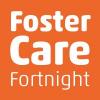Foster Care Fortnight: Our opportunity to celebrate foster carers and kinship carers
Kathleen Toner, director of The Fostering Network in Northern Ireland, what we are doing to celebrate Foster Care Fortnight in Northern Ireland and the future of foster care in the nation
Foster carers are at the frontline of the looked after system. Removing children from their birth family is not an act undertaken lightly and they bring with them the impact of their experiences. Foster carers respond by opening their homes and their families to a child who needs, more than anything, safety, stability, reassurance and care. Foster carers establish emotional bonds, do the school run, help with homework, advocate tenaciously so each child can achieve their full potential. They support these children and young people in sustaining relationships with their birth families, they comfort and console them when things aren’t going well, encourage them to build relationships, love them and want the very best for them.
In one of his early morning tweets last week, poet Lemn Sissay said: ‘I need to remind myself, I don’t do this alone. The echo which returns, is not my own.’
For me, this is very reflective of our approach to Foster Care Fortnight here. In Northern Ireland we hold three major events during the fortnight, which this year will be attended by over 400 people across our sector. Uniquely in Northern Ireland, we promote Foster Care Fortnight in partnership with the Regional Adoption and Fostering Service, enabling us to take a regional approach, engage all the Health and Social Care Trusts, all independent agencies and reach out to all our individual foster and kinship foster carer members.
All statutory and independent fostering agencies in Northern Ireland are members of The Fostering Network and this makes Foster Care Fortnight a truly collaborative effort.
Reflecting on her experience of being a foster carer at a recruitment event in the Southern Trust this week, Ciara told the large assembled crowd that she had asked her foster child recently why foster care is important. The child replied: ‘It means less responsibility. It means I can be a child.’ A simple statement, which captures the essence of why foster care is so important.
A time of opportunity
In Northern Ireland there has been a renewed focus on meeting the needs of all looked after children. Looked after children were included in the Programme for Government, Northern Ireland has a draft strategy for looked after children which is inclusive of young people up to 25 and we have just responded to the Adoption and Children Bill which will introduce a raft of measures which are greatly welcomed. However, it is also a time of great challenge with no government in place, no budget agreed with the consequent potential implications and a need to recruit at least 200 new foster carers to keep pace with demand across the country. As such it has never been more important for all the agencies, across all sectors to pull together. We believe we need to maintain the momentum, to continue to build excellence in foster care services and this is a collective responsibility. It is reflected in the partnerships we have built and in the inclusive working relationships we are developing at every level in Northern Ireland. We all need to continue to work together to ensure we meet the needs of every single child in care in Northern Ireland.
It is always a privilege to be the director of The Fostering Network in Northern Ireland and this is never more true than at our Foster Carer of the Year Awards ceremony which took place on Saturday night. In its tenth year, it has gone from strength to strength and it is a huge celebration of the incredible contribution foster care makes to our society. We had eleven winners, all of whom were ordinary people doing extraordinary things, making a difference. I want to thank all foster and kinship carers in Northern Ireland who are ‘proud to foster’ and all the staff in all the agencies’ who are ‘proud to support fostering’.





